Tanzania (Dodoma)
Justdiggit unites with the collective power of the smallholder farmers and local communities in Africa, teaching powerful restorative agricultural techniques to green up Africa and cool down Earth.
Where can we find sources of hope in the face of the often overwhelmingly negative news concerning the health of our planet?
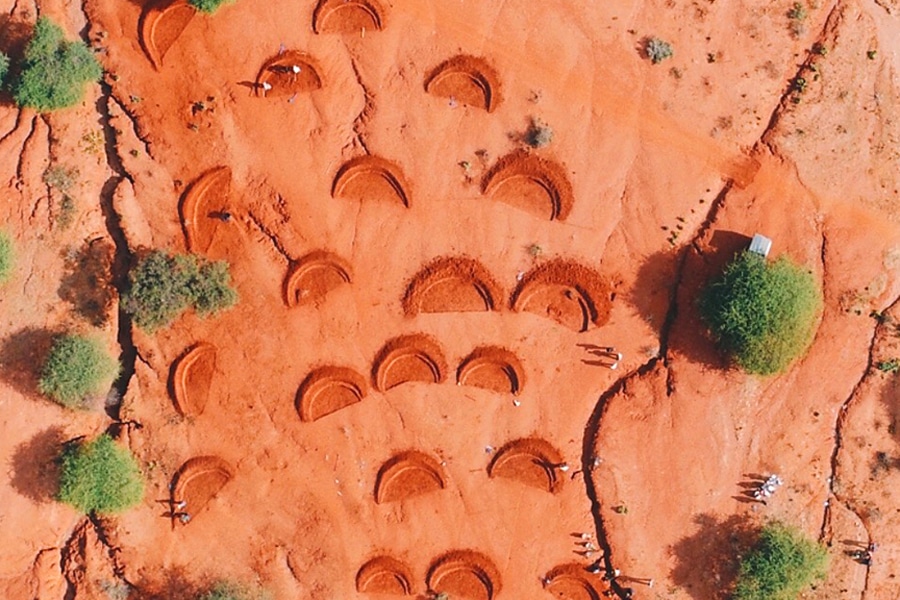
Bunds photographed by a drone. Photo: Justdiggit
A growing global movement to cool down the planet through landscape restoration is demonstrating that not only can we fight climate change, but we can also reverse some of its effects. The Nature Conservancy highlights that improved land management alone can get us 37% of the way to meeting the Paris Climate Target.
Restoration projects, both large and small scale, are being carried out across the planet from the Amazon rainforest to rural China. Land that has been degraded through deforestation, overexploitation or harmful agricultural practices proposes an opportunity for landscape restoration. Regreening such lands offers a rapid and effective way to sequester carbon dioxide, improve soil quality, restore the water cycle and strike back in the fight against climate change.
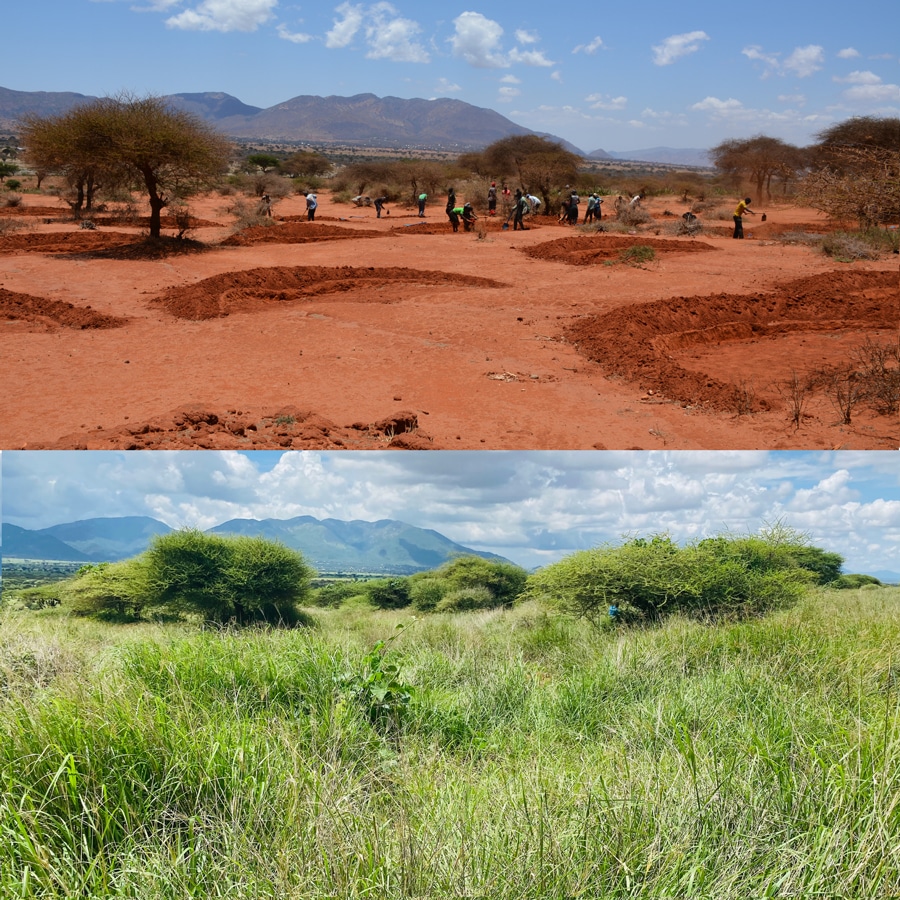
Before and after in Pembamoto, Dodoma, Tanzania in January 2021. Photo: Justdiggit
Dutch NGO Justdiggit is one organisation leading the fight. Justdiggit’s focus is on greening degraded or desertified lands in Africa, inviting the world to imagine sub-Saharan Africa in 2030 as being “lush, rich and cool.” The message of hope from Justdiggit is clear; if we can heat up the earth, we can also cool it.
Justdiggit was founded by Dennis Karpes and the late Tanzanian artist Peter Westerveld. Westerveld grew up in Tanzania and saw the effects of deforestation first hand. After successfully restoring vegetation to degraded, dry land through water management techniques, Westerveld met Karpes and Justdiggit was born as a means to scale up the work.
The project now counts on a team of ambassadors to create global awareness of the potential of landscape restoration including Archbishop Desmond Tutu, MMA fighter Simon Biyong, and Dutch astronaut André Kuipers. However, the key to the Justdiggit approach is the collective power of the smallholder farmers and local communities in the areas being regenerated. Rather than operate as a single centralised entity slowly overseeing restoration from one area to the next, Justdiggit empowers local farmers to use regenerative practices on their own land.
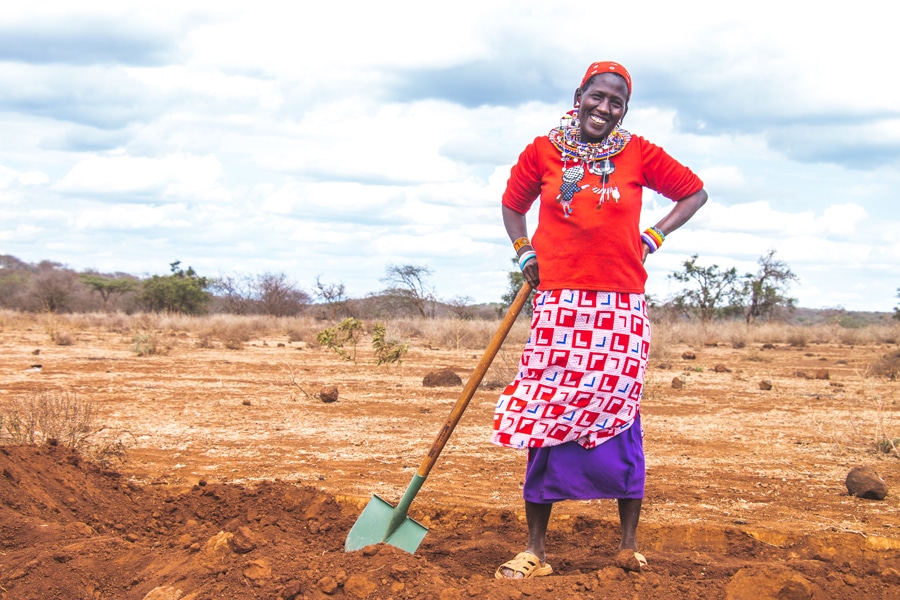
Local farmer restoring the landscape one bund at a time (Kuku, Kenya). Photo: Justdiggit
The interventions are fairly simple, low-cost techniques. One is Farmer Managed Natural Regeneration, known as Kisiki Hai in Swahili (“meaning living stump”). Kisiki Hai involves simply pruning and protecting the stumps of cut down trees allowing regrowth and helping new sprouts to grow tall.
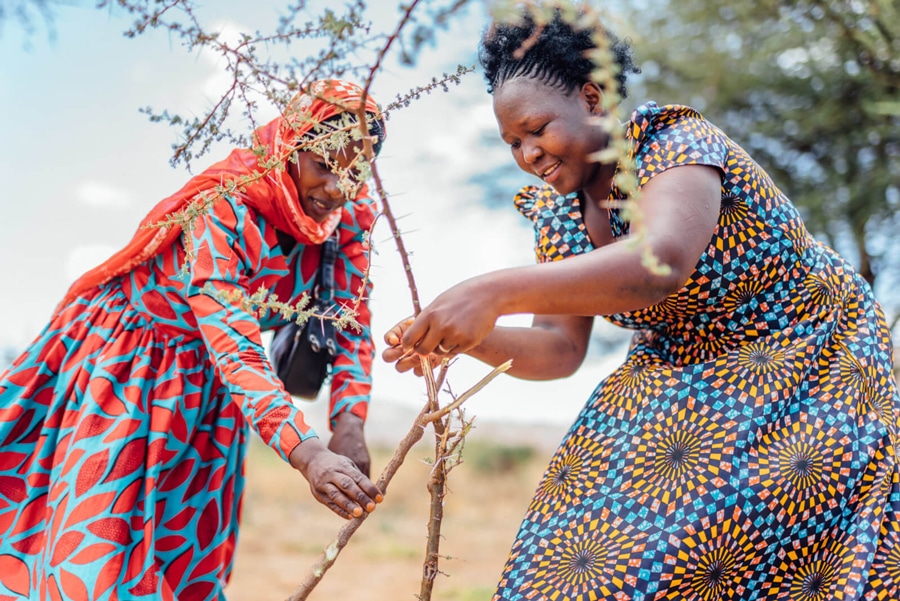
Two farmers performing Kisiki Hai in Dodoma, Tanzania. Photo: Justdiggit
Another example is rainwater harvesting. Justdiggit’s approach is to dig bunds; semi-circular shaped pits that capture rainwater. Due to their shape, Justdiggit also calls their bunds “earth smiles”. Rainwater that would previously have washed away, further eroding and hardening the surface, is captured, the water balance is restored and vegetation regrows.
Restoring vegetation restores the water cycle. When this is carried out over a large area it helps to create clouds, increasing rainfall. That rainfall benefits the vegetation, which continues to improve the water tables, et voilá: a pathway appears to turn desertified lands lush and green!
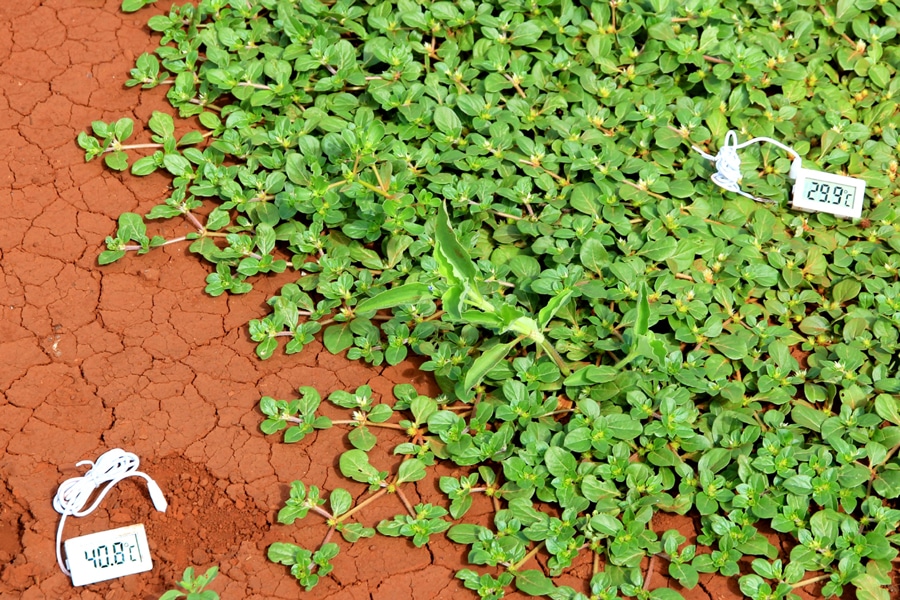
Cooling soil temperature. Photo: Justdiggit
Farmers become rainmakers while regreening their lands and benefiting from increased crop yields. And, of course, these local communities’ work benefits us all, as greener land makes for a cooler planet. “Our projects are a success story carried out in conjunction with local farmers,” says Justdiggit’s Senne van’t Hof. “Together, we have restored 60,000 acres of land and the project has positively impacted the lives of thousands through employment and an improved climate and vegetative cover.” Landmark projects so far include Kuku in Kenya where the Maasai community has dug 116,248 bunds and Dodoma, Tanzania where over 6-million trees have been regenerated through Kisiki Hai. In addition to growing its footprint in Kenya, Justdiggit is starting to work with partners in Uganda and Ethiopia, as well.
As local communities move toward the goal of regreening the continent, their land management techniques are combined with Justdiggit’s modern marketing strengths. Senne van’t Hof says communication is key to scaling up restoration. “The UN Environment Programme has declared this decade as one for ecosystem restoration. We are one of the partner projects in that initiative and our mission is to regenerate the whole continent. The plan is to achieve our objective by working with local farmers. We will get in touch with them through social media, text, radio and television advertisements. It’s important to mobilise the people to join our regreening movement. We are using the slogan ‘It’s the decade of doing and everyone can dig in’”.
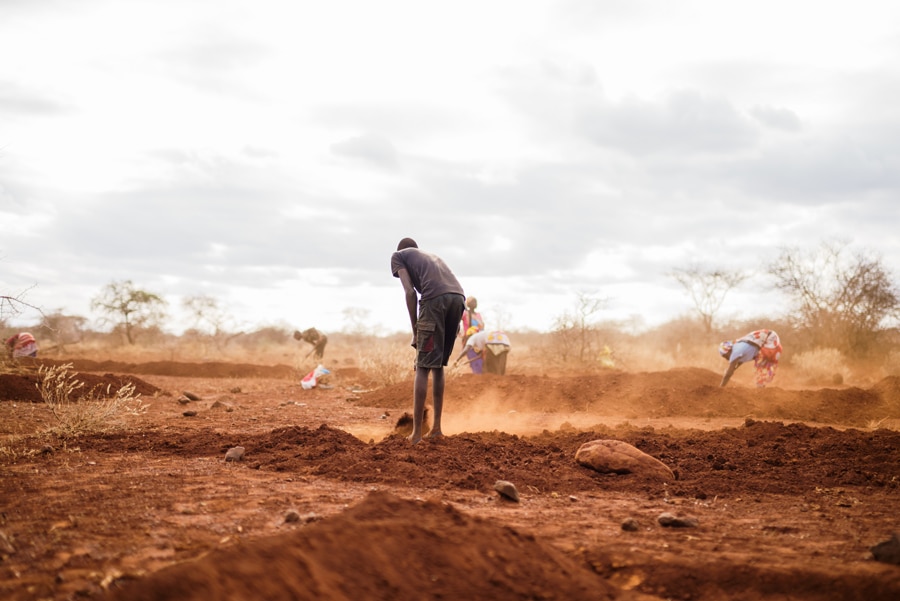
Maasai farmers digging bunds in Kenya. Photo: Justdiggit
AtlasAction: If you want to dig in you can buy a bund through the Justdiggit website. By buying bunds you can follow the process of regreening and get to know the farmers benefiting from your support.
Bio
Fraser Mitchell, a contributor to BCN Més, publishes AfricaLive.net, a digital guide to sustainable business on the African continent and participates in the permaculture project Rovira Regenerativa in Aragón, Spain.
Project leader
Justdiggit was founded by Dennis Karpes and the late Tanzanian artist Peter Westerveld
Support the Atlas
We want the Atlas of the Future media platform and our event to be available to everybody, everywhere for free – always. Fancy helping us spread stories of hope and optimism to create a better tomorrow? For those able, we'd be grateful for any donation.
- Please support the Atlas here
- Thank you!

